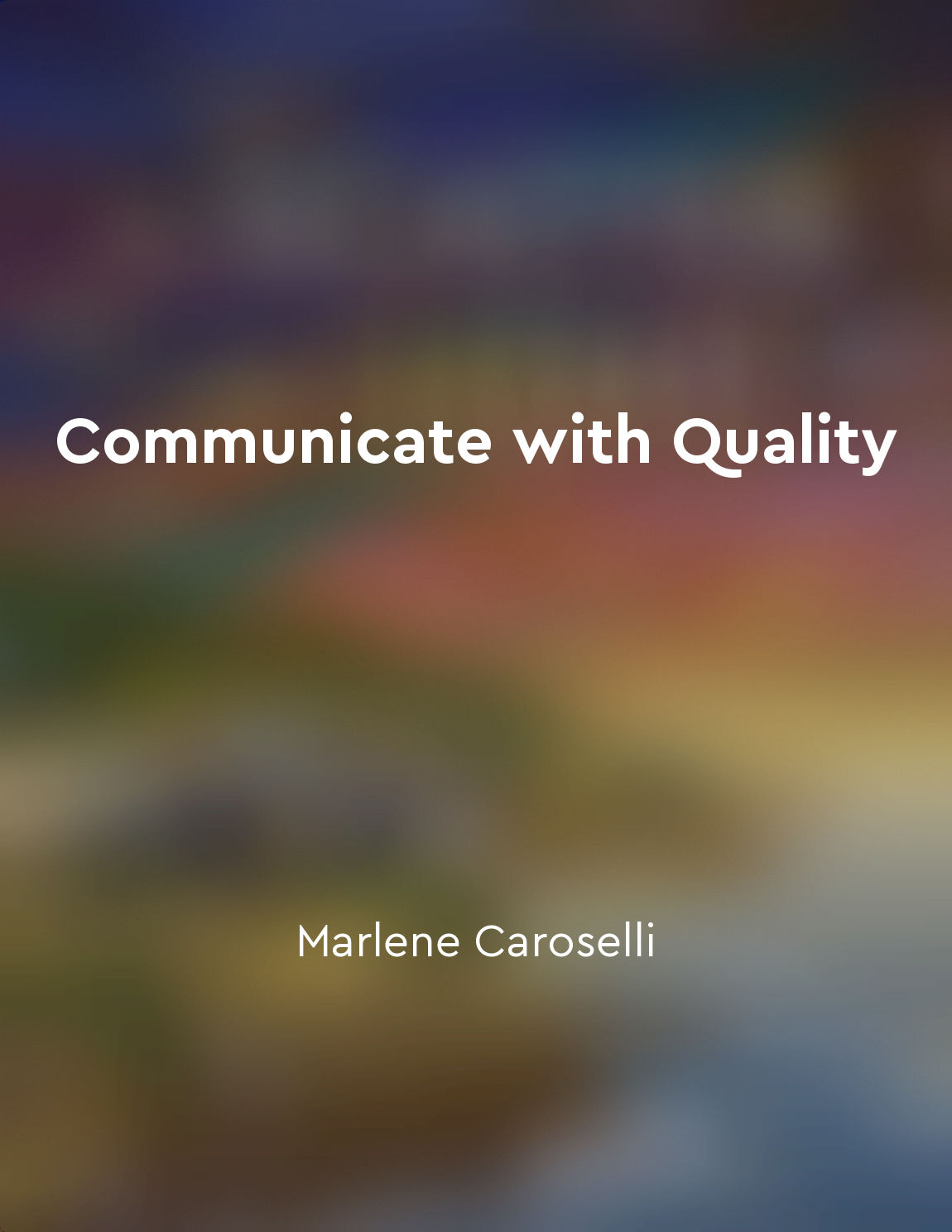Practice active listening in your questioning process from "summary" of Change Your Questions, Change Your Life Workbook by Marilee Adams PhD,Andrea F. Lipton
Active listening is a key skill in the questioning process because it allows you to truly understand the other person's perspective. When you practice active listening, you demonstrate that you are fully engaged in the conversation and interested in what the other person has to say. This involves giving the speaker your full attention, maintaining eye contact, and being present in the moment. By listening actively, you are able to pick up on subtle cues and emotions that can provide valuable insights into the other person's thoughts and feelings. Active listening also involves asking clarifying questions to ensure that you have understood the other person correctly. This can help prevent misunderstandings and foster better communication. By asking open-ended questions that encourage the other person to elaborate on their thoughts and feelings, you can gain a deeper understanding of their perspective. This can lead to more meaningful and productive conversations. In addition to asking clarifying questions, it is important to practice empathy and validation when listening to others. This means acknowledging and validating the other person's feelings, even if you do not necessarily agree with their perspective. By showing empathy and understanding, you can build trust and rapport with the other person, which can lead to more open and honest communication. Active listening can also help you uncover underlying assumptions and beliefs that may be influencing the other person's perspective. By asking probing questions that challenge these assumptions, you can help the other person gain new insights and perspectives. This can lead to greater self-awareness and personal growth for both parties.- Practicing active listening in your questioning process can help you build stronger relationships, foster better communication, and gain deeper insights into the thoughts and feelings of others. By demonstrating empathy, asking clarifying questions, and challenging underlying assumptions, you can create a more open and honest dialogue that can lead to positive change and personal growth.
Similar Posts
Employ repetition for emphasis
Repetition is a powerful tool that can be used to emphasize a particular point in your performance. By repeating a key word or ...
Create a positive work environment that fosters motivation and engagement
One of the key responsibilities of a leader is to cultivate a workplace atmosphere that uplifts and inspires their team members...
Use appropriate tone and volume in your speech
When communicating with others, it is crucial to pay attention to the tone and volume of your speech. Your tone sets the mood o...

Foster a Love for Lifelong Learning
To truly excel as a student, one must embrace the idea of cultivating a deep and abiding passion for learning that extends far ...

Supere los miedos que le limitan
Overcoming the fears that hold you back is crucial for personal growth and success. These fears act as barriers that prevent yo...
Embrace challenges as opportunities for growth and learning
When faced with challenges in life, it is important to view them as opportunities for growth and learning. Rather than becoming...

Honesty is crucial in building trust with others
In order to establish trust with others, honesty is absolutely essential. When we are open and truthful in our communication, w...

Building trust is essential in any relationship
When it comes to relationships, trust is the glue that holds everything together. It is the foundation upon which strong connec...
Avoid judgments and criticism
When we judge or criticize teens, we are essentially shutting down the lines of communication. Our negative comments can make t...
Develop emotional intelligence to enhance your communication
Emotional intelligence is a key factor in effective communication. When we develop our emotional intelligence, we become more a...

